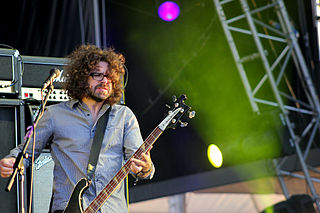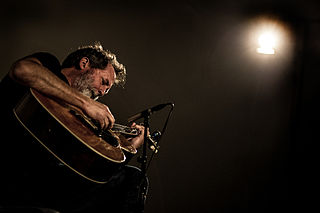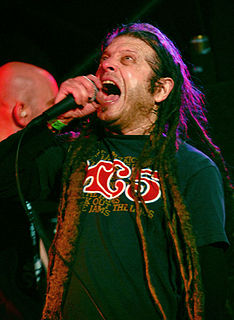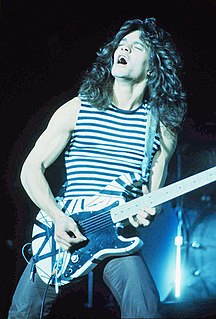A Quote by Lou Barlow
Now, when I have a four-string that I take on the road with me, it's a regular Martin. I bought a decent Martin with a pickup in it, and then I just take off the strings and have four strings on it.
Related Quotes
With a four-string, the middle range is less of an option. That kind of 5th that you play on those A and D strings isn't there. So a lot of traditional rock sounds, you can't play them. But to be honest, there was no particular intention when I started playing with four strings. It just worked out that way and it sounded cool.
What I do is work for three or four years and then I take a year off, and then I come back again and work for three or four years and then take another year off. It is not about just working and then writing for a year. That is not how it is structured. It is about doing very conscious goal-driven activities for four years and then taking a year off in complete surrender to discover facets of myself that I don't know exist and exploring interests with no commercial value associated with them at all.
This is what happens: somebody—girl usually—got a free spirit, doesn't get on too good with her parents. These kids, they're like tied-down helium balloons. They strain against the string and strain against it, and then something happens, and that string gets cut, and they just float away. And maybe you never see the balloon again . . . Or maybe three or four years from now, or three or four days from now, the prevailing winds take the balloon back home . . . But listen, kid, that string gets cut all the time.


































